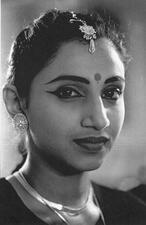Philanthropy and Volunteerism

Benvenida Abravanel

Helen Goldmark Adler
Helen Goldmark Adler is remembered for her philanthropic achievements and her marriage to Felix Adler, philosopher and founder of the Ethical Culture Movement. In turn-of-the-century New York, Adler penned articles, established a free kindergarten for children with working-class parents, and founded an organization focused on the science of child-rearing.
Racie Adler
Racie Friedenwald Adler helped shape a number of Jewish institutions, most significantly the Women’s League for Conservative Judaism. As the Women’s League vice president, she helped establish Jewish student houses on campuses, the forerunners of modern Hillel houses.
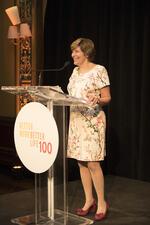
Advancing Women Professionals in the Jewish Community
Advancing Women Professionals and the Jewish Community (AWP) was founded by Shifra Bronznick in 2001 as an intervention “to advance Jewish women into leadership, stimulate new models of shared leadership, and promote policies for healthy, effective workplaces.” Over fifteen years, AWP conducted groundbreaking research and adapted strategies from other sectors that engaged women and men in decisive, systems-based change.
Mildred Elizabeth Levine Albert
Mildred Albert charmed the fashion world as an international fashion consultant, lecturer, columnist, and radio and television personality. She carved a niche for herself in the fashion world as the head of a modeling agency and an inventor of new kinds of fashion shows.
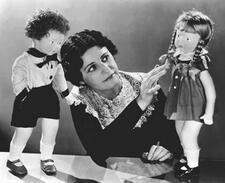
Beatrice Alexander
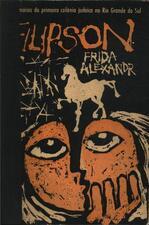
Frida Alexandr
A Brazilian-born daughter of immigrants, Frida Alexandr was the only woman writer to describe Jewish cowboys in Brazil from the viewpoint of one who lived among them. Her only published book was the novel Filipson, which chronicled the lives and episodes of the farm where she was born in 1906 and spent two decades of her life.
Anna Marks Allen
Anna Marks Allen was part of a group of Philadelphia Jewish women who established and ran the first independent Jewish charitable societies in the United States. At a time when congregational Jewish life was restricted to men, Jewish women of Allen’s social status increasingly turned towards philanthropy as a way to participate in the public life of the Jewish community.
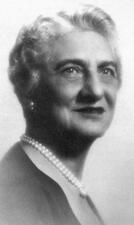
Rose Haas Alschuler
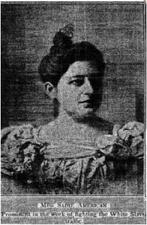
Sadie American
Forceful, dedicated, and brash, Sadie American shaped the National Council of Jewish Women for more than twenty years before resigning and severing all ties with the organization. As one of the Council’s founders, American organized local sections and represented the group nationally and internationally, generally building up the organization.
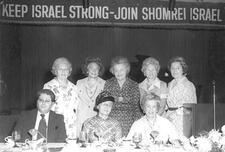
AMIT

Sadie Cecilia Annenberg
Sadie Annenberg's husband Moe made the couple millionaires by pawning Sadie’s jewelry and starting several businesses. Sadie Annenberg used that money to generously support numerous Jewish causes in both the United States and the State of Israel, including those in the arts, politics, science, and more.
Argentina: Philanthropic Organizations

Argentina: Sephardic Women

Argentina: Zionist Activities

Fanny Baronin Von Arnstein
Fanny von Arnstein, who rose to the rank of baroness, navigated the artistic and political upheaval of the Napoleonic Era as a hostess of salons that welcomed celebrities, artists, musicians, and politicians. The respect she garnered fostered the growing acceptance of Jewish in Viennese high society. During the Napoleonic Wars, she aided the sick and wounded and advocated unsuccessfully for the equal rights of Jews at the Congress of Vienna.
Jeannette Arons

Patricia Arquette

Assimilation in the United States: Nineteenth Century
Associazione Donne Ebree D'Italia (ADEI)
The Association of Italian Jewish Women, or ADEI, was founded in 1927 in the city of Milan, Italy, home to the second largest Jewish community in the country.

Beatrice Fox Auerbach
People who shopped or worked at G. Fox and Company in Hartford, Connecticut, from the 1930s to the 1960s have fond memories of Beatrice Fox Auerbach and her department store. Auerbach, who became president of G. Fox and Company after her father died, was a talented executive, and the company became the largest privately owned department store in the country.

Australia: 1788 to the Present
The first Jewish women, like the first Jewish men, arrived in Australia on the very first day of European settlement in 1788. Those convict pioneers were followed by free settlers who made Jewish communal and congregational life viable and helped to develop the vast continent. Jewish women have made significant contributions to Australia's national story.
Sophie Cahn Axman
Edith Jacobi Baerwald
Edith Jacobi Baerwald devoted her energy to philanthropic organizations, but she also loved connecting directly with the people she helped through her volunteer work at settlement houses. She considered volunteer work a social obligation and poured her time and tireless energy into numerous projects.
